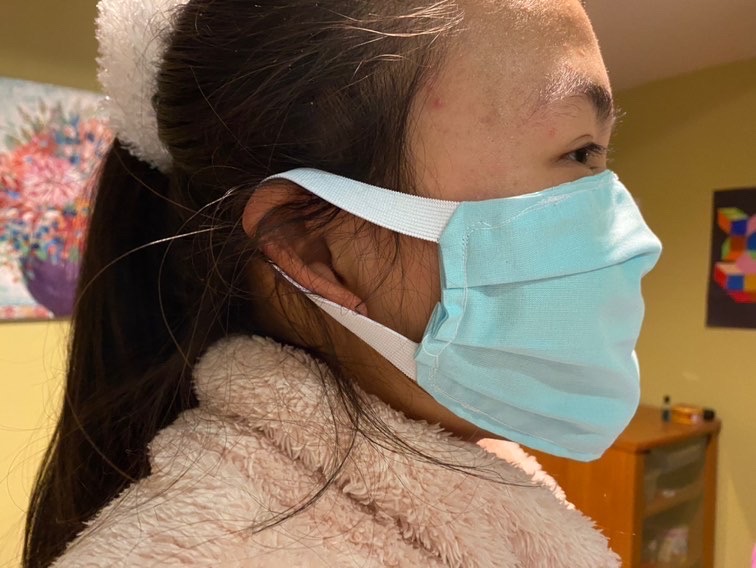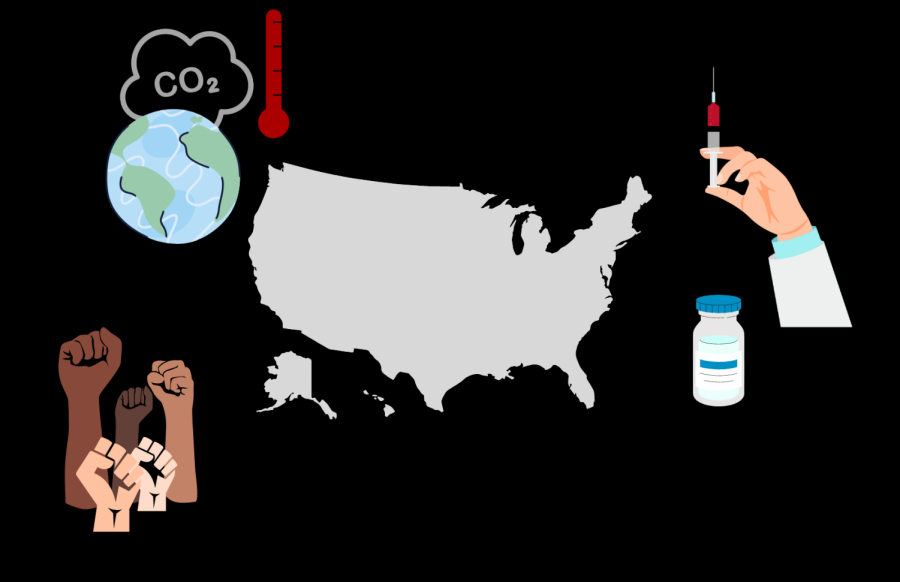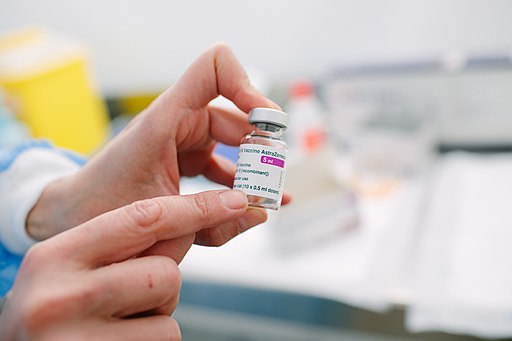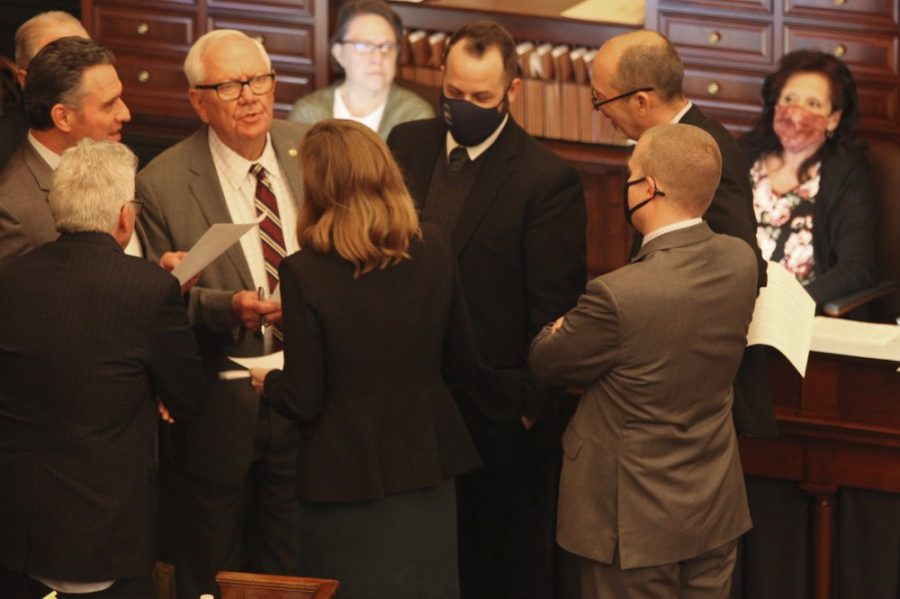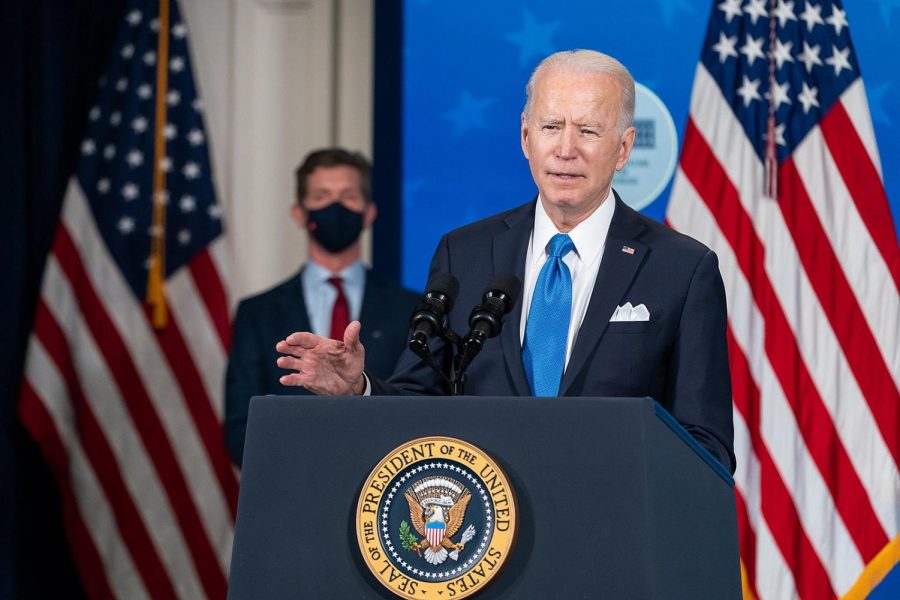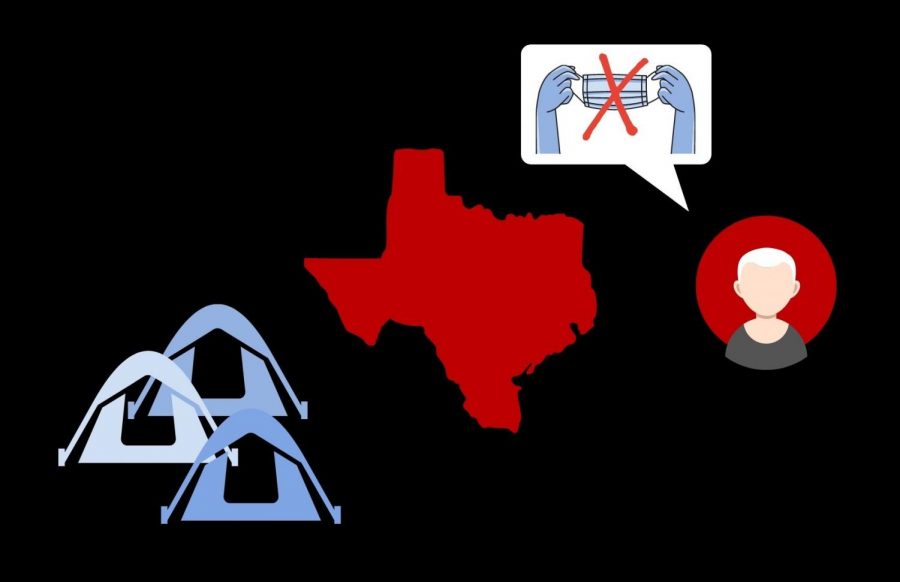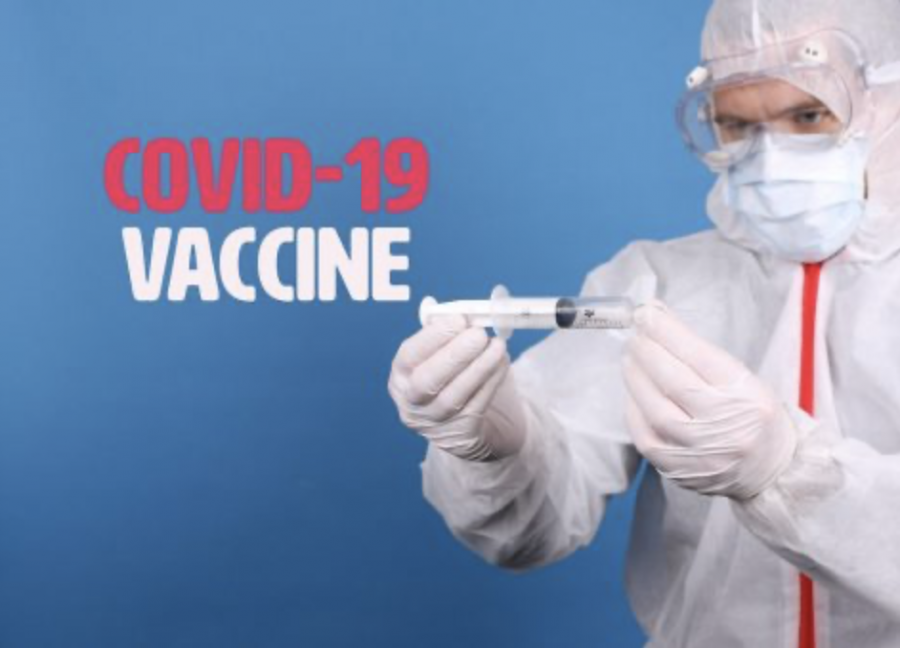Due to the rapid outbreak of COVID-19, hospitals are burning through personal protective equipment (PPE), including surgical masks, to treat infected patients. After being notified about the shortage of N95 respirator masks through the media, members of the community are stepping up to help by making homemade face masks to donate to local hospitals.
The Centers for Disease Control and Prevention stated that in a time of crisis, in which there are no facemasks available, health professionals can use handmade masks as a last resort. Due to the lack of testing to identify which fabrics can provide adequate protection against the virus’ particles, homemade masks have not been designated as official PPE, but health care professionals are desperate for any level of protection.
Two Carlmont sisters, Carolyn Wang, a junior, and Emma Wang, a freshman, run a scrunchie-making business, CE scrunchies. In response to the current shortage of medical supplies, they have shifted their focus and are now using their fabrics to make masks for COVID-19 healthcare workers.
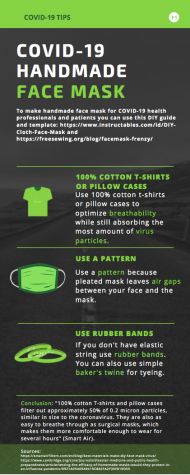 “We saw on the news that many hospitals were experiencing shortages in masks, and we wanted to help. We though making cloth masks would be a good option because they are washable, easy to sterilize, and reusable,” Carolyn Wang said.
“We saw on the news that many hospitals were experiencing shortages in masks, and we wanted to help. We though making cloth masks would be a good option because they are washable, easy to sterilize, and reusable,” Carolyn Wang said.
Jonna Rossi, a Campbell, California resident, saw an article from Forbes alerting citizens that masks are needed and decided to chip in.
“My twin sister, who works at a children’s hospital as a neonatal nurse, was telling me how stressed out the nurses are because they don’t know if there is enough protective gear for themselves, patients, or patient’s families,” Rossi said. “I made some masks with a DIY guide and my sewing machine. Even if the masks aren’t approved to use at a hospital, I was thinking of giving them to elderly people to use when they go out to get groceries.”
The masks aren’t only needed for people caring for COVID-19 patients; children going through chemo, visitors, and parents of babies in the NICU all need to wear these masks.
According to the Buffalo News, as well as Dr. Martina Puzanov, a pediatrician and a participant in making handmade masks, these masks are not antiviral, but they do provide a substantial barrier.
“If someone sneezes, or even talks, they involuntarily discharge small droplets. This mask prevents these droplets from traveling six feet,” Puzanow said.
On Twitter, Facebook, and other platforms, people are coming up with hashtags such as #millionmaskmayday and #
The number of masks needed to supply healthcare professionals across the U.S. is staggering. For example, according to Jennifer Bayersdorfer, the vice president at Providence St. Joseph hospital, for St. Joseph’s 51 hospitals, roughly 100 million masks are needed.
It won’t be an easy task, but as Bayersdorfer said, “The world is ready to act.”

